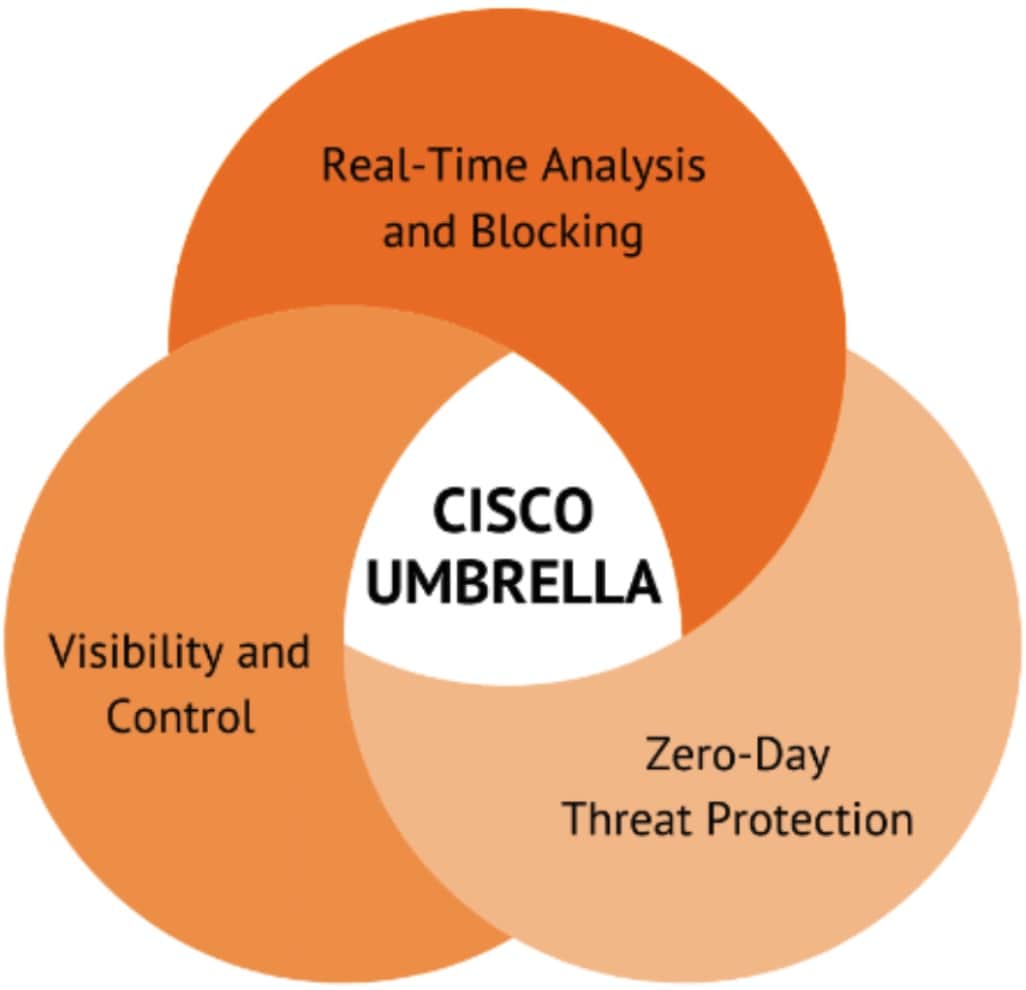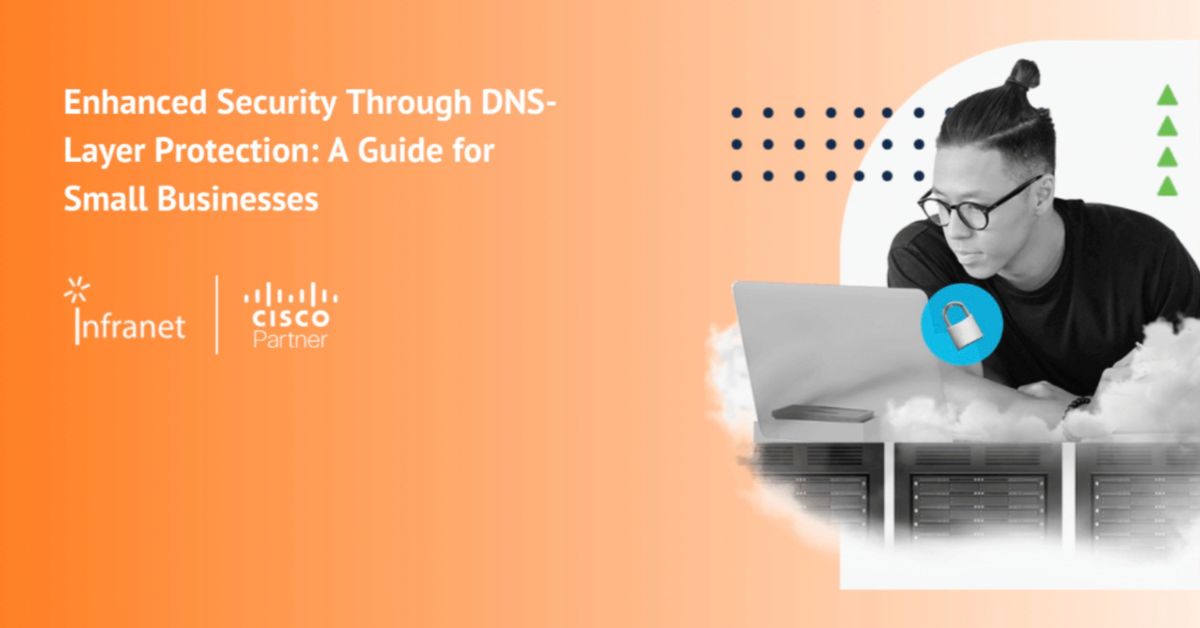The Imperative of Internet Security
In an era where digital transformation is not just an advantage but a necessity, small businesses are increasingly exposed to the vast expanse of internet threats. Cybersecurity is no longer a domain reserved for large corporations with deep pockets. Small businesses, often perceived as low-hanging fruit by cybercriminals, are facing an escalating risk of cyber attacks. These threats range from malware and ransomware to sophisticated phishing schemes aimed at pilfering sensitive data. Amidst this digital turmoil, understanding and implementing robust internet security measures is paramount. This guide delves into the foundational role of DNS-layer protection, offering small businesses a potent weapon in their cybersecurity arsenal. By exploring the nuances of DNS-layer security, this article aims to empower small businesses with the knowledge and tools to fortify their digital defenses effectively, with a special focus on Cisco Umbrella products.
Elevating Small Business Security with DNS-Layer Protection
Expanding the Scope of Internet Security
Cybercriminals employ sophisticated techniques to exploit vulnerabilities, necessitating a robust, multi-layered security approach for businesses. This strategy should protect against known threats and detect and respond to new, previously unknown attacks.
Deep Dive into DNS-Layer Protection
DNS-layer protection is a critical component of a multi-layered security strategy, providing an efficient and effective means to thwart attacks before they reach the network or endpoints. Cisco Umbrella emerges as a leading solution in this space, offering small businesses comprehensive protection that extends beyond the traditional boundaries of DNS filtering.
Real-time Analysis and Blocking: Cisco Umbrella utilizes the internet’s infrastructure to block malicious and unwanted domains, IP addresses, and cloud applications before a connection is ever established. With advanced algorithms and machine learning, Umbrella analyzes DNS requests in real-time, identifying and blocking connections to malicious sites with precision, thereby providing an effective defense against phishing, malware, and ransomware.
Visibility and Control: Umbrella gives businesses unparalleled visibility into internet activity across all locations and users. Its dashboard offers detailed reports and real-time logs, allowing for the monitoring of DNS traffic and the identification of suspicious behavior patterns indicative of compromised systems or ongoing attacks.
Zero-Day Threat Protection: Cisco Umbrella’s threat intelligence is among the best in the industry, offering protection against zero-day threats by leveraging a vast amount of internet activity data processed by Cisco’s global network. This data enables Umbrella to identify emergent threats and block them proactively.

Integrating DNS-Layer Security with Other Security Measures
While Cisco Umbrella provides robust DNS-layer protection, integrating it with other security measures creates a comprehensive defense-in-depth strategy. This integration might include endpoint protection, firewalls, email security solutions, and regular software updates. Cisco Umbrella enhances these layers by adding an additional security measure that is not only proactive but also intelligent in its threat detection and prevention capabilities.
Endpoint Protection: Solutions such as antivirus and anti-malware software are essential for detecting and removing malicious software that may have infiltrated devices. Ensure that Umbrella is correctly configured to cover all network devices and users, including remote workers.
Firewalls: Both network and application firewalls help to block unauthorized access and can be configured to control outgoing traffic, further reducing the risk of data exfiltration.
Email Security: Given that phishing is a primary vector for cyberattacks, robust email security solutions that filter out malicious emails can significantly reduce the risk of compromise.
Encryption: Encrypting data in transit and at rest ensures that even if data is intercepted or accessed unauthorizedly, it remains unreadable and secure.
Regular Updates and Patch Management: Keeping software and systems up to date with the latest security patches is critical to protecting against vulnerabilities that attackers could exploit.
Best Practices for Enhanced DNS-Layer Security
To optimize DNS-layer security, small businesses should adopt the following best practices:
- Regularly update the DNS security solution to ensure it has the latest threat intelligence.
- Configure strict DNS filtering policies that align with the business’s security requirements.
- Train employees on the importance of cybersecurity and safe internet practices, as human error can often bypass technical safeguards.
Securing Your Digital Footprint
Small businesses stand to benefit immensely from this level of cybersecurity. Cisco Umbrella serves not just as a barrier against cyber threats but as a beacon of insight, offering deep visibility into network activity and proactive protections against the ever-evolving landscape of cyber threats.
Investing in a solution like Cisco Umbrella signifies a commitment to not only defending against immediate threats but also to building a resilient, forward-thinking cybersecurity posture. As small businesses continue to navigate the challenges of the digital age, embracing solutions that offer comprehensive, intelligent security measures like Cisco Umbrella will be key to ensuring their growth, sustainability, and success in an interconnected world.
If your company would like to take the next step to enhance your security posture, contact us and our team will be happy to assist.

